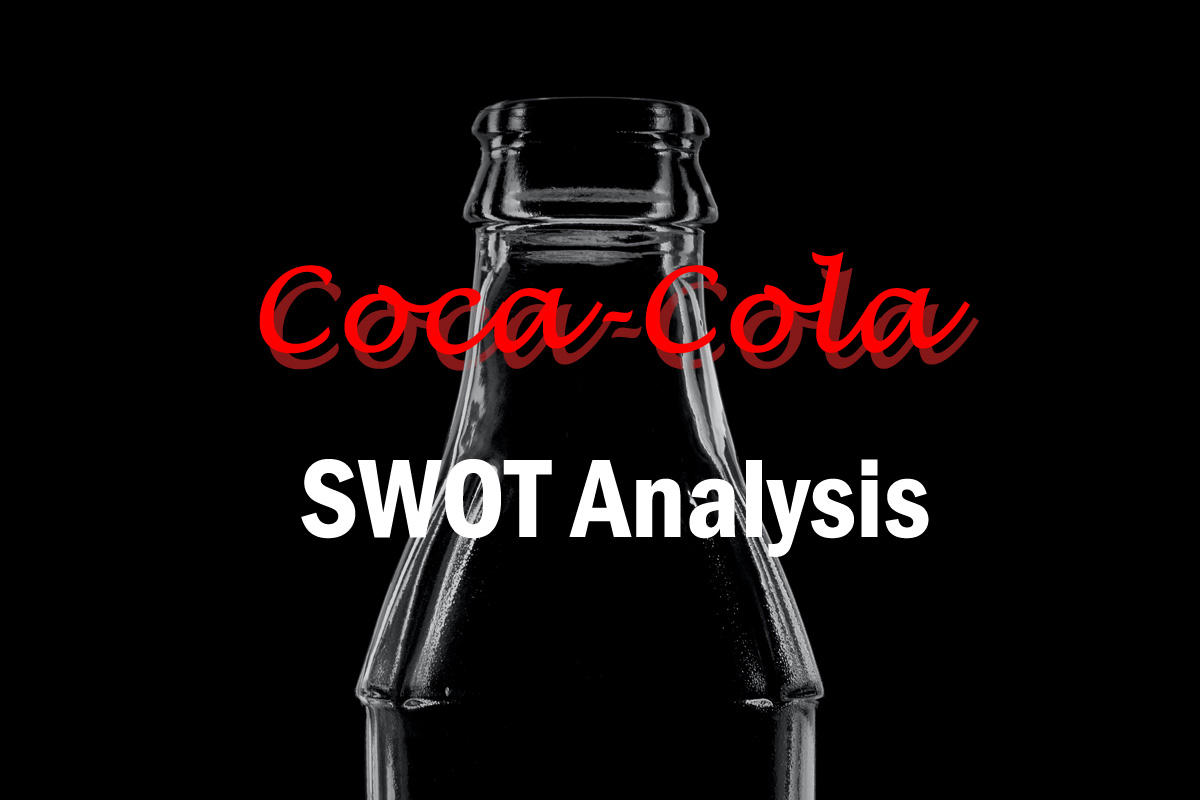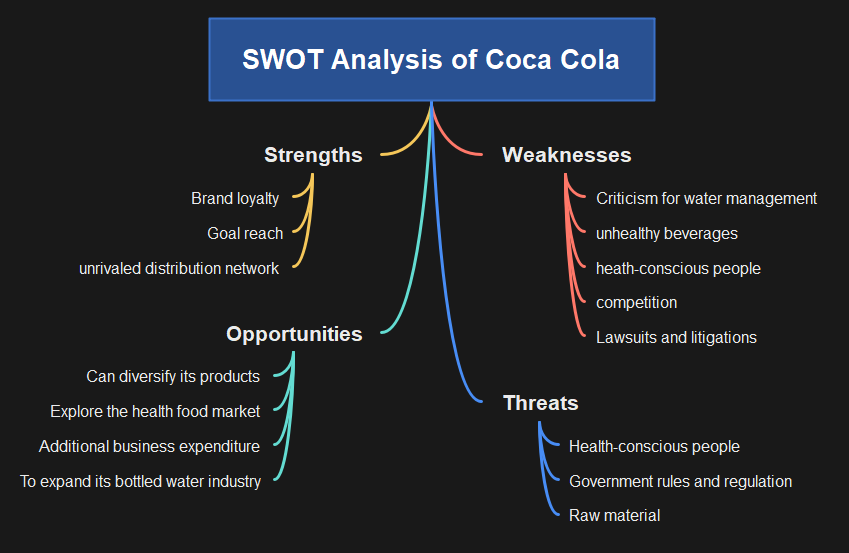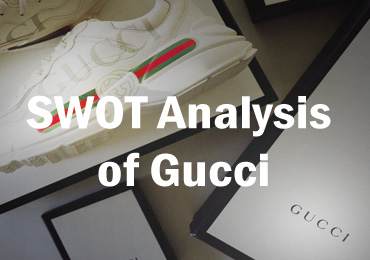SWOT Analysis of Coca-Cola

Introduction
It is critical to understand Coca-Cola's history and plans to conduct a SWOT analysis. The Coca-Cola Company is a global beverage company based in the United States of America. Syrups and non-alcoholic beverage concentrates are manufactured, marketed, and sold by the company. Coca-Cola has become a household name. The Coca-Cola Company makes this carbonated soft drink brand. The brand has created a name for itself in the soft drink sector since its start. It gained popularity as a refreshment drink in the beginning.
Through experimentation and partnerships, it has undergone various adjustments over the years to improve its service and flavor. The corporation currently employs 150,000 people. It operates based on a franchised distribution network. The company's success and prominence may be attributed to its consistency and realistic and creative marketing techniques. It began modestly in 1886 and has remained steadfast in the face of adversity since before.
2. Coca-Cola's Strengths
The first stage for Coca-Cola is to extend their business into places with strong purchasing power. The majority of businesses appear to value market expansion. Then, and only then, could this industry make more progress:
Brand Loyalty: Extended worldwide reach with the company goods are offered in more than 200 countries, with 1.9 billion servings every day. It has launched over 500 new goods throughout the world. Some of these are Coca-Cola drink varieties. Its brands are recognized to appeal to people from all walks of life and demographics.
Goal Reach: Coca-Cola is one of the most emotionally-connected brands in the United States, with the highest brand association and consumer loyalty. This lucrative brand is linked to "happiness" and has high consumer loyalty. Customers can immediately identify their preferred flavor. It is tough for them to find alternatives.
Unrivaled distribution network: Coca-Cola boasts the world's most powerful and broad distribution network. Around 900 bottling factories and roughly 225 bottling partners are part of the company's global bottling network.
3.Coca-Cola's Weaknesses
PepsiCo's oxygenated drinks are putting up a strong fight for market dominance; the company's soft drinks include a lot of sugar and other chemicals that are harmful to one's health.
Unlike PepsiCo, the corporation has yet to launch a food division. The main focus is on drinks. Even though the company has a wide variety of brands, it is primarily dependent on Sprite and Coca-Cola brands.
The company has faced criticism for water management problems and trying to exploit groundwater even in sparse liquid regions.
Concerns about health because Carbonated beverages are a primary source of sugar. Obesity and diabetes are two serious health problems as a result. Coca-Cola is the world's largest carbonated beverage maker. Many health professionals advise against drinking these soft drinks. For the corporation, it is a contentious subject. Coca-Cola, on the other hand, has yet to come up with a healthy alternative or answer to this issue.
4. Coca-Cola's Opportunities
Coca-Cola can develop new products and diversify its present offers. They can back this up with a brand name, consumers, production, and research. It's conceivable to build goods in areas that Pepsi hasn't yet explored, particularly in the health food market. This allows them to diversify their product line beyond soft drinks. Coca-Cola is sold in over 200 countries. They may concentrate their efforts on emerging countries with hotter climates. These countries will appreciate Coca-Cola in a manner that developed countries, which are already spoiled for choice, may not.
- The company can popularize less well-known items. It must take advantage of the opportunity to buy additional businesses and strengthen the company.
- It must take advantage of the opportunity to buy additional businesses and strengthen the company.
- Kinley's expansion is not comparable to Bisleri's, but it can launch a full-fledged health-drinks industry.
5. Coca-Cola's Threats
Coca-water Cola's was suspected of containing pesticides. However, as a result of global warming, water is becoming scarce. Coca-Cola relies on a lot of water to build its soft drink empire; therefore, if water becomes limited, it'll be in serious difficulty. That's why it is critical to develop new goods. Pepsi would be harmed as well if water became scarce, but they have other markets to exploit and expand. Coca-Cola, on the other hand, does not.
- In addition, the growth and development of cafés may jeopardize Coca-survival. Cola's Smoothies, tonics, and beverages are gaining popularity. People are seeking sugar-free options that are also healthful.
- People nowadays are more concerned with making healthy choices; thus, they avoid aerated beverages.
- The raw material is a major consideration when it comes to sourcing.
6. Mind Map
The Coca-Cola SWOT analysis can assist the organization to identify strategies that will help it enhance its position and increase income. It determines the competition's impacts and weaknesses based on the culture and organizational structure. By examining opportunities, the organization may rebuild its plans and activities. The corporation can pursue business expansion to generate profit and long-term economic stability. It is also capable of adapting to modern technology.








